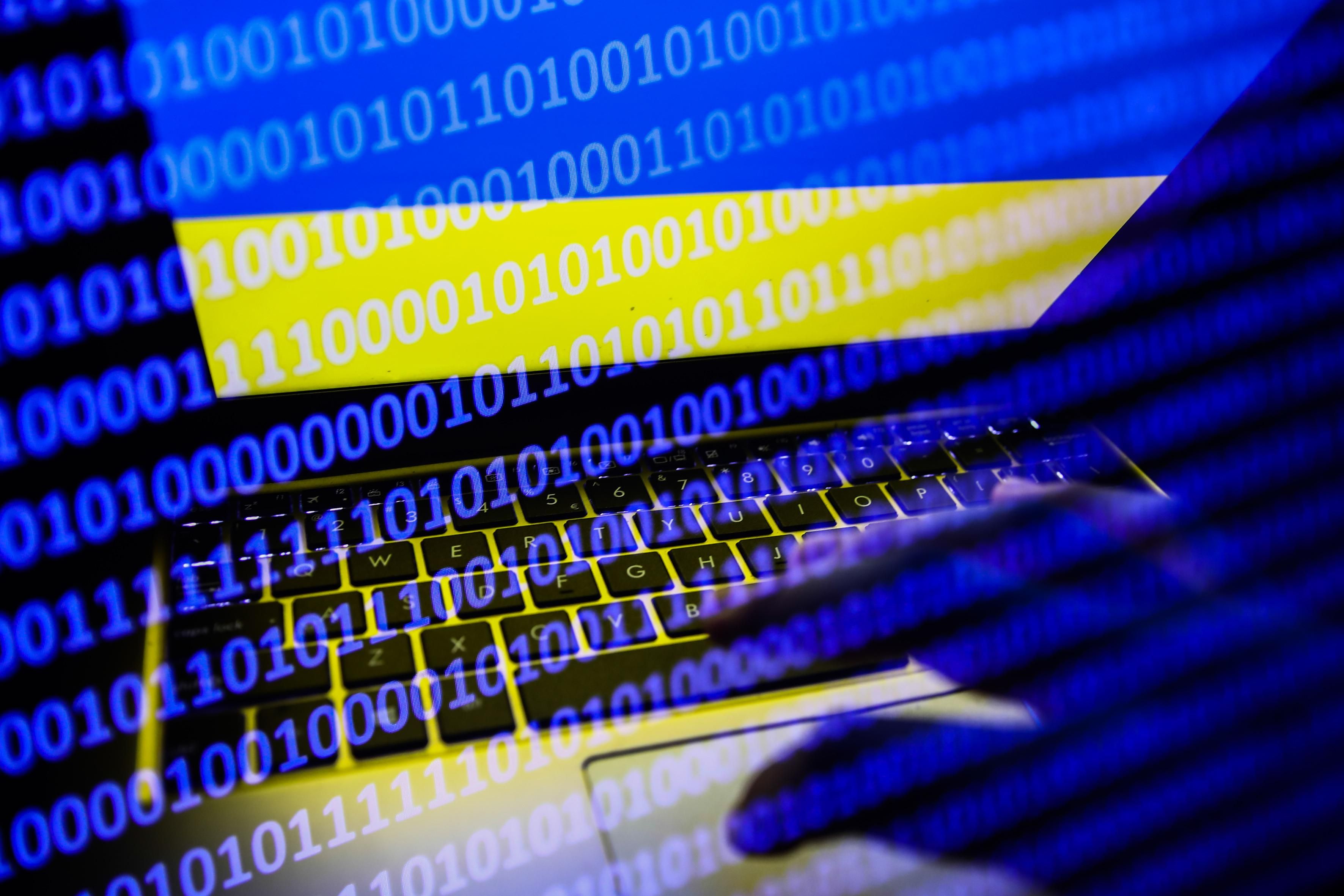What We're Watching: Cyberwarfare in Ukraine, Imran Khan in Moscow, National Guard in DC, breaking Europe's energy habit
Cyberwarfare heats up in Ukraine. Even before Putin launched a large-scale conventional assault on Ukraine, cyberweapons were already flying fast and furious. Ukraine’s top IT official said Wednesday that websites for the government, foreign ministry, security services, and several unnamed banks were down after being hit with denial-of-service attacks. (Jargon interlude: a DDoS is where hackers flood a website with so much traffic that no one else can access it.) The latest cyber salvo comes just days after a similar attack on Ukraine's defense ministry and two banks, which the US blamed on Russia. The Kremlin, naturally, denies having anything to do with the attacks. As the Ukraine-Russia crisis continues, expect cyberwarfare to be a major component. NATO Deputy Secretary General Mircea Geoană told GZERO at the Munich Security Conference that the alliance expects cyberwarfare to feature heavily in the conflict. This could pose a big risk beyond the two countries involved.
Khan at the Kremlin. Pakistani Prime Minister Imran Khan arrived in Moscow on Wednesday for a two-day state visit to Russia, the first by a Pakistani leader since 1999. Khan has caught flak at home about the timing, with his trip coming just a day after the US and EU sanctioned Russia over the Kremlin’s invasion of Ukraine, though the visit has been planned for months. One important topic for both is Afghanistan, where the growing power of jihadist groups — whom the Taliban is either unable or unwilling to stamp out — is a regional challenge for Moscow and a direct threat to neighboring Pakistan. They will also likely discuss the planned construction of a $3 billion Russian-Pakistani natural gas pipeline. But there’s a bigger geopolitical dance going on here: Pakistan’s archfoe India is cozying up to Washington just as its big friend China is drawing closer to Russia. With Khan increasingly jilted by the US (President Joe Biden famously refuses to even call the Pakistani leader), the visit sends a message that Pakistan is exploring its options. Question is, are they any good?
National Guard deployed to DC. Chaos has come to the capitals of Canada and New Zealand in recent weeks as antigovernment protesters fired up over COVID-related mandates and, in some cases, conspiracy theories, have taken to the streets. Authorities in Ottawa have made progress quashing protests following Prime Minister Justin Trudeau’s invocation of the Emergencies Act, but demonstrations continue around New Zealand’s parliament in Wellington. Soon, all eyes will be on Washington, D.C., as American truckers roll into town ahead of President Joe Biden’s State of the Union address on March 1. In anticipation, the Pentagon is sending 700 unarmed National Guard troops to the nation’s capital to help manage road congestion and expected demonstrations. Will that be enough to keep order, or will Biden find himself facing a challenge that forces him to take more drastic measures?
Europe looks to break its bad energy habit. Next week, the EU will announce plans to dramatically reduce its energy dependence on Russia, currently the bloc’s largest single source of natural gas. A draft of the proposal, as reported by the Washington Post, envisions a 40 percent reduction in fossil fuel consumption by 2030, cuts red tape for renewables, and creates room for governments to help people pay their energy bills. Taken together with Germany’s decision on Tuesday to mothball the Nord Stream 2 gas pipeline, the plans suggest that Russia’s latest aggression against Ukraine has prompted a wholesale rethinking of the types and sources of Europe’s energy mix. But any changes will take years to materialize — Russia supplies 40 percent of Europe’s gas, a figure that has actually increased over the past 15 years. In the meantime, Europe must tread carefully in its sanctions response to Moscow. The Kremlin, flush with a big cash buffer, could still wreak havoc with already-high European energy prices by slowing the westward flow of gas.